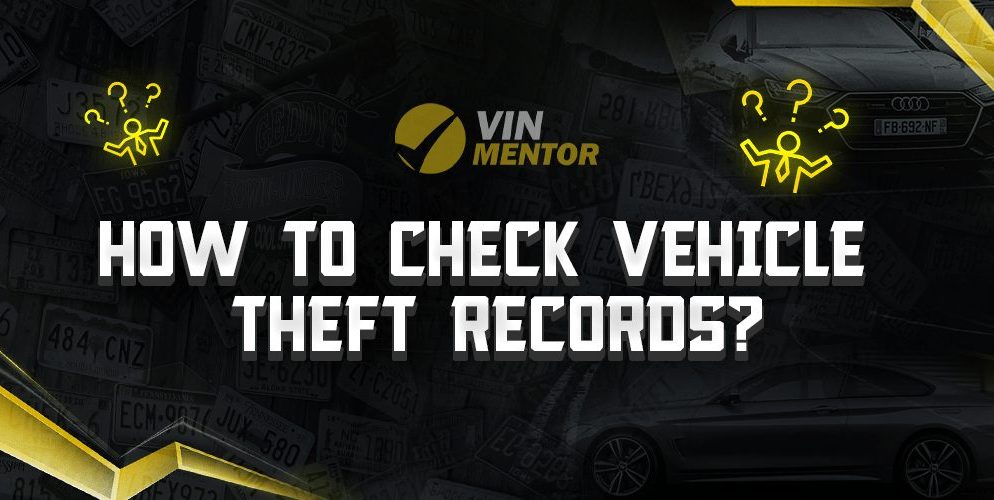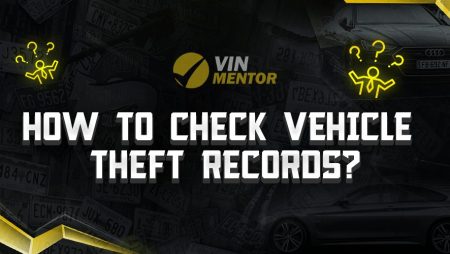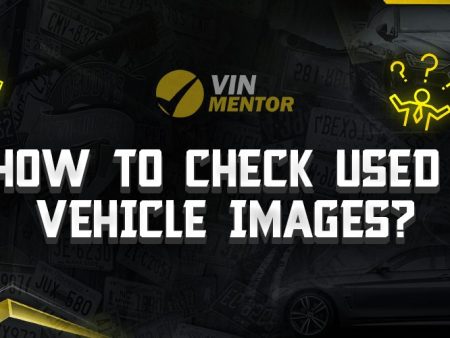

When considering the acquisition of a pre-owned vehicle, it is vital to gather extensive information regarding its past in order to make a well-informed choice. One crucial aspect to consider is the vehicle’s theft records. By checking for any previous theft incidents, you can ensure a safe and secure purchase. In this article, we will explore the methods and resources available for checking vehicle theft records. Read on to discover the key steps involved in assessing a vehicle’s theft history and making a wise buying choice.
Key Takeaways
- Gather extensive information on a pre-owned vehicle’s past, including its theft history, before making a purchase.
- Obtain comprehensive vehicle history reports from dependable providers based on the VIN to learn about theft incidents and more.
- Utilize the trusted NICB database to search for theft records associated with a vehicle using the VIN and access additional details, such as recovered stolen vehicles.
- Contact the local DMV or visit their website to conveniently access stolen vehicle information and verify theft incidents using the VIN.
- Reach out to local law enforcement agencies, provide them with the VIN, and inquire about reported theft incidents to verify a vehicle’s theft history. Some regions may offer online stolen vehicle registries for VIN-based searches.
How Can One Verify a Vehicle’s History of Theft Incidents?
When it comes to ensuring the safety and security of a potential vehicle purchase, verifying its history of theft incidents is crucial.
Method 1: Vehicle History Reports
- Acquire comprehensive vehicle history reports that encompass theft records.
- Vehicle history reports offer valuable information regarding a vehicle’s past, including instances of theft.
- Dependable providers generate thorough reports based on the vehicle identification number (VIN).
By acquiring comprehensive vehicle history reports that encompass theft records, you gain access to valuable information about a vehicle’s past. These reports, generated by dependable providers using the VIN, offer a detailed account of the vehicle’s history, including instances of theft. However, it’s crucial to remember that vehicle history reports should be used in conjunction with other checks and inspections to make an informed decision when purchasing a used vehicle.
Method 2: National Insurance Crime Bureau (NICB) Database
- Take advantage of the National Insurance Crime Bureau (NICB) database, a highly regarded and reliable resource that houses a wealth of information on vehicles reported as stolen.
- Access the database and initiate a search by inputting the vehicle’s unique identification number (VIN) to determine if any theft records are associated with the vehicle in question.
- The NICB database offers more than just theft records; it may also furnish additional valuable details, including information on recovered stolen vehicles.
The National Insurance Crime Bureau (NICB) database serves as a valuable tool in the process of verifying a vehicle’s history of theft incidents. By utilizing this database, you can access a wealth of information that helps shed light on the vehicle’s past.
Method 3: State Department of Motor Vehicles (DMV)
- Reach out to your local Department of Motor Vehicles (DMV) or browse their official website to obtain information related to stolen vehicles.
- Many states have dedicated databases within their DMV systems that enable users to conduct VIN-based searches for stolen vehicles, offering a convenient and trustworthy means of verifying theft incidents.
- Ensure you check for any reported theft incidents associated with the particular vehicle you are considering, as this step contributes to a comprehensive investigation into its history.
When it comes to assessing the history of theft incidents involving a vehicle, the State Department of Motor Vehicles (DMV) proves to be an essential resource. By reaching out to your local DMV or accessing their website, you can access the necessary information to evaluate the vehicle’s theft history.
Method 4: Police Reports and Stolen Vehicle Registries
- Reach out to local law enforcement agencies, such as the police department, to inquire about stolen vehicle reports.
- Provide them with the vehicle’s VIN and ask if there have been any reported theft incidents associated with the vehicle.
- In certain regions, online stolen vehicle registries may be available, allowing you to search for stolen vehicles using the VIN, further aiding in the verification process.
Utilizing police reports and stolen vehicle registries offers a direct approach to gather information on a vehicle’s history of theft incidents. By contacting local law enforcement agencies, you can inquire about reported theft incidents associated with the vehicle by providing them with the VIN. Additionally, online stolen vehicle registries, where available, can further aid in the verification process by allowing you to search for stolen vehicles using the VIN.
Conclusion
Ensuring the safety and legitimacy of a used vehicle purchase requires checking its theft records. By utilizing methods such as vehicle history reports, NICB database searches, DMV inquiries, and police reports, you can gather valuable information to assess the vehicle’s theft history. Remember, investing time and effort in checking a vehicle’s theft records can protect you from potential risks and provide peace of mind in your purchase. To conduct a thorough theft record check, consider performing a VIN check using our recommended best VIN Check Websites, which provide accurate and reliable information.
FAQ
What is a vehicle history report, and why is it important in checking theft records?
A vehicle history report is a comprehensive document that provides information about a vehicle’s past, including any instances of theft. It is important because it allows potential buyers to make an informed decision by understanding the vehicle’s history and identifying any theft incidents.
How can I access a vehicle history report based on the VIN?
To obtain a vehicle history report, you can approach dependable providers who generate reports using the vehicle identification number (VIN). These providers gather information from various sources and compile it into a detailed report that includes theft records and other important details about the vehicle’s history.
What additional information can I find in the NICB database?
The National Insurance Crime Bureau (NICB) database not only provides theft records associated with a vehicle but also offers additional valuable details. This may include information about recovered stolen vehicles, which can provide further insight into the vehicle’s history and potential risks associated with it.
Are there any online resources available for checking stolen vehicle information?
Yes, some states have online stolen vehicle registries within their Department of Motor Vehicles (DMV) systems. These registries allow users to search for stolen vehicles using the VIN, offering a convenient and trustworthy method to verify theft incidents.
Can I rely solely on police reports for checking a vehicle’s theft history?
While police reports can be a valuable source of information, it is recommended to use them in conjunction with other methods. Contacting local law enforcement agencies and providing them with the VIN can help verify reported theft incidents. However, using multiple sources, such as vehicle history reports and the NICB database, can provide a more comprehensive and accurate assessment of a vehicle’s theft history.












